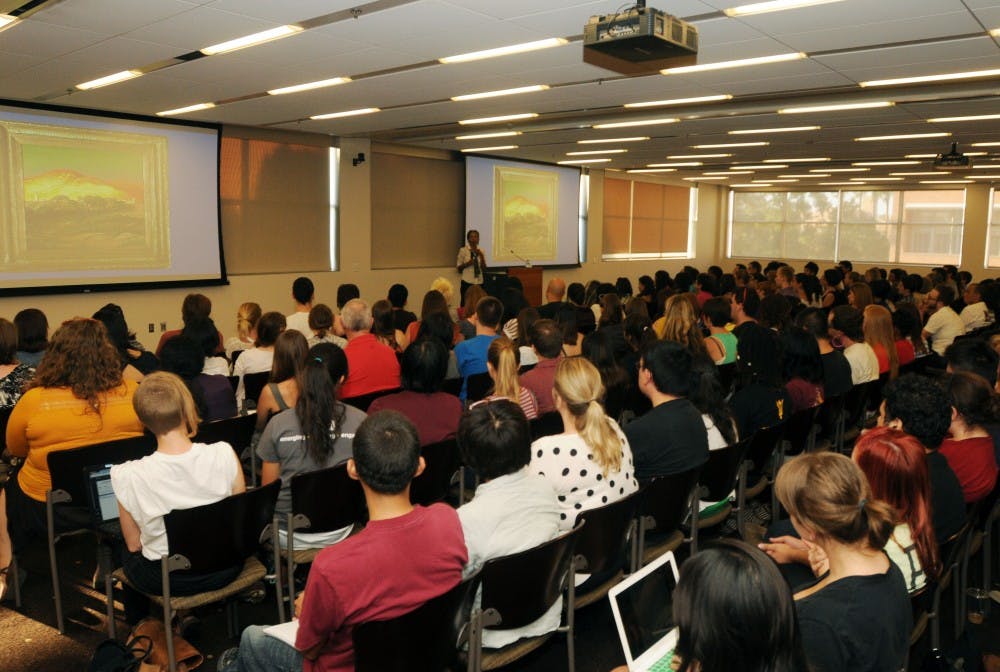“This isn’t racist, but...” “I don’t want to sound insensitive, but...” “I don’t think this is going to sound ‘politically correct,’ but...”
These are all phrases I’ve heard during my time at ASU. They’re used by casual racists, ignorant of their privileged positions, trying to interject some bigoted statement into a classroom discussion.
As an English senior, I’ve sat through some cringeworthy moments that would shock seasoned social justice warriors. These experiences led me to question a racist statement’s value and place in higher education.
Racism should be confronted head-on in our classrooms, dormitories and dining facilities. Our college should be a place of tolerance — a place to celebrate diverse backgrounds rather than reinforce old prejudices.
My initial reaction to people saying some racist line is to be disgusted. I simply can’t believe that someone would open their mouth and defend an author or work that is intolerant and hateful. I usually expect the professor to condemn them. I want there to be some censorship, a slap on the wrist, something!
But that’s not always what happens. Sometimes, we gloss over a comment or remark that is blatantly racist. It could be for the sake of sociability, to keep order in the classroom or to simply hope that ignoring it will make it go away.
We can’t keep doing this. In order for our classrooms to live up to inclusivity and tolerance, we must force the issue into the open. We may have to listen to a racist, but we don’t have to humor them.
Just like the Catholic Church accepts the deepest sinners for salvation, we too must accept racists in order to educate them. Not only can we educate them, but we can learn something ourselves.
By allowing everyone the freedom to share their opinion, even if they are racist, we have the opportunity to learn the many different forms that racism takes. We see it in microaggressions and in blatant statements, but we can learn from it. Instead of immaturely dismissing racism in the classroom, we should maturely have it out.
The Atlantic recently published “The Coddling of the American Mind,” in which the authors argue that the current culture of “sensitive” and “overprotected” college students aren’t able to get a good education.
I heard this on NPR and read it online, and I found myself in that group of sensitive college students. I wanted to close my ears and avert my eyes to any racist people in my classroom, whether they be the professor or students. I wanted all of it to exist outside the walls of my education.
After being informed by this article, however, I realized that the inclusion of difference and being uncomfortable about racism would lead me to a better understanding of myself, others and a culture that produces racist sentiments.
Once we’ve all been in this type of classroom and had an honest experience with a sentiment that makes us uncomfortable, we’ll be better for it. There will be less racism, and all graduates will be better prepared to face an increasingly diverse and different world.
Maybe, one day, nobody will say “This might be racist, but...”
Related Links:
Editorial: America isn't post-racism and never will be
Conversing on the taboo: racism
Reach the managing editor at pnorthfe@asu.edu or follow @peternorthfelt on Twitter.
Like The State Press on Facebook and follow @statepress on Twitter.




